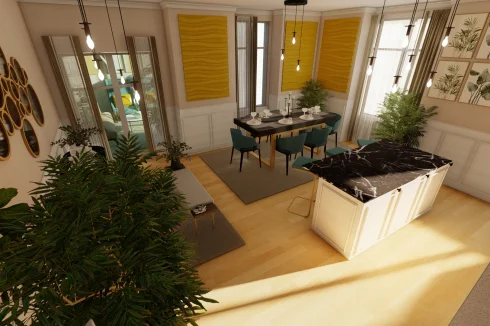The social security arrangements for artists and authors have been changed, as part of a more general reorganisation for all self-employed persons.
Until this year there were distinct social security arrangements for professional artists and authors in France, with each group having its own social insurance agency.
In the case of artists the agency is called the
MDA (
Maison des Artistes pour les arts graphiques), while that for authors is called
AGESSA (
Association pour la gestion de la sécurité sociale des artistes auteurs).
Both are branches of the general social security system, whose funding is through social contributions from members and contributions from galleries etc on the sale, display or use of works.
Affiliation to MDA or AGESSA means that you will pay a rate of (circa) 17% in social security contributions on net earnings, substantially lower then other self-employed groups, although there are also complementary pension contributions in place which are payable in applicable cases, ie, minimum level of earnings, dramatic or musical performances.
Those who affiliate to MDA include painters, engravers, sculptors, graphic designers, potters, ceramists, while AGESSA is reserved for literary, scientific and dramatic writers, composers, photographers, filmmakers, animators, illustrators, and translators.
Strictly speaking, the former is restricted to those who create limited, individual pieces of work, while the latter to those whose income comes mainly from royalties.
In practice, neither rule is strictly enforced and, although you will be expected to show photos of your work, the agencies do not normally undertake a detailed examination of your oeuvre.
However, gaining access to this exclusive club is not automatic, for not only is entry restricted by the nature of your activities, but also by the level of your income.
Although as a start-up you need to registered with either body, unless you can demonstrate a minimum level of earnings you will not be affiliated, although this should give you health cover through the general health system.
New artists and authors unable to meet the criteria for registering in one of these agencies can also register as an artisan through the Chambre des Metiers, or through URSSAF as a profession libérale, although it will depend on the nature of your activity.
Since 1st January 2019, the declaration and payment of social security contributions will now have to be made to the general social security collections agency, URSSAF, and no longer to the accredited bodies.
In addition, commencing January 2020, for income earned in 2019, authors and artists will be considered as automatically fully affiliated to the social security system, irrespective of their level of earnings.
An implementing decree has yet to be published setting out in detail the new procedures.
According to the government this modernisation should enable artists and authors to acquire more rights within the general social security regime.
Whilst the current system is protective for affiliated author-artists (of whom there are around 39,000) it is much less so for the many artists and authors (220 000 of them) who contribute without any rights being open to them.
This is because in order to be affiliated, and thereby gain rights, there is a minimum income threshold of €8,784 (2017), albeit mere registration grants health cover.
It seems that the main reason for the transfer of responsibility out of the existing insurance funds is due to the poor performance of the funds in the collection of social security contributions, resulting in a loss of rights to members and income to the funds.
Nevertheless, there is widespread concern amongst artist-authors, many of whom remain sceptical about the value of these new changes, fearing a decrease in their royalties and an increase in their contributions.
Both Agessa and the MDA will continue to remain in existence, but with more limited responsibilities, mainly as professional bodies controlling access to the professions.
The change is part of a more general plan by the government to simplify the social security system in France, by abolition of the various professional social insurance agencies that exist for the self-employed and other special groups.
These agencies have come under severe criticism in recent years, as we have previously set out articles in our Newsletter in
The 'Racket Social des Indépendants' and
Business Owners and CIPAV.As a result, since January 2019 the general social insurance fund for the self-employed, the Régime Social des Indépendants (RSI) has been abolished for new entrants, and from 2020 will no longer exist.
The local health authorities (CPAMs) are taking on the responsibility for health cover. Neither are there any longer admissions to CIPAV apart from a few professional groups.
Accordingly, self-employed persons will in future have their health affiliation managed through their CPAM and their pensions managed by the general pension authority.





